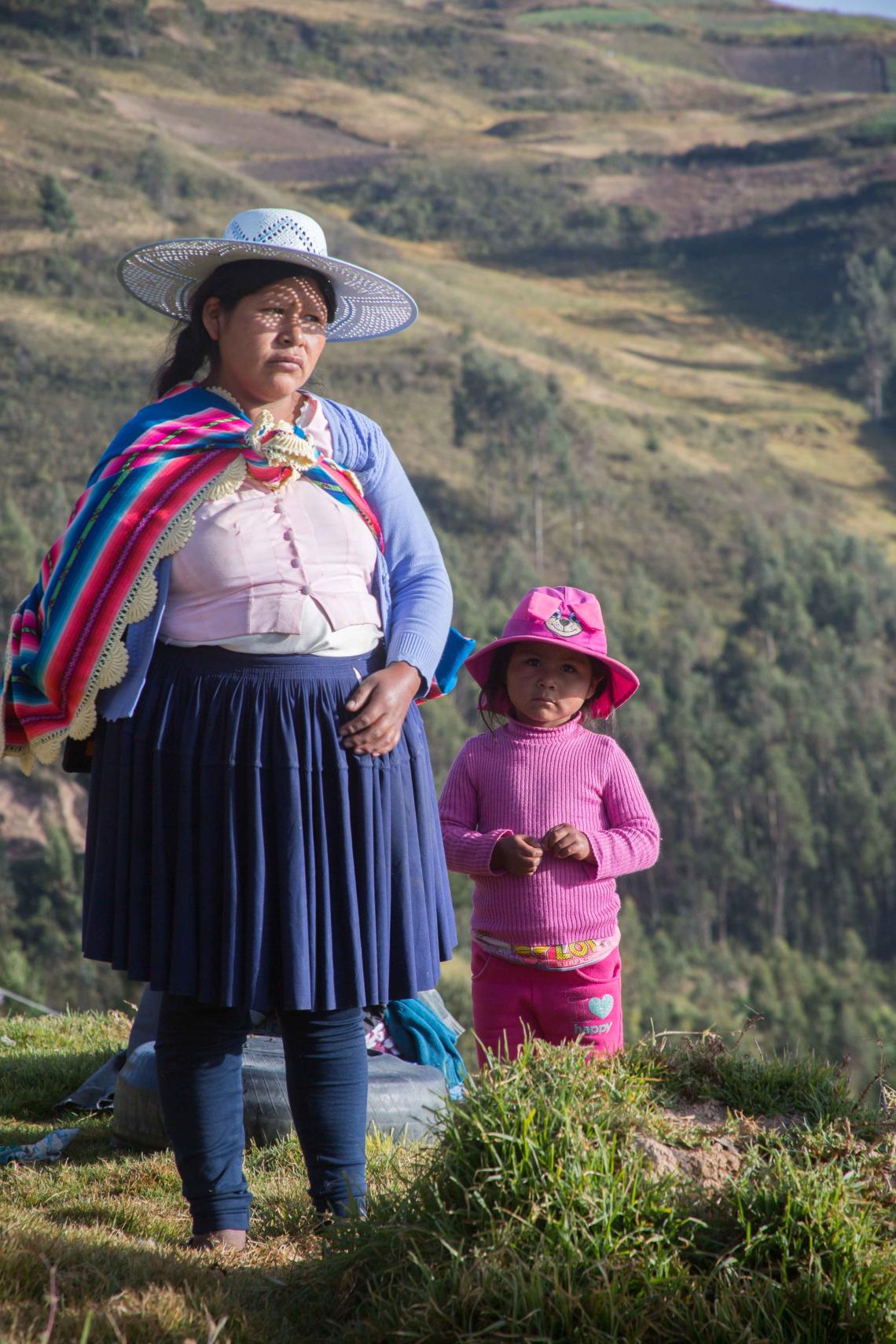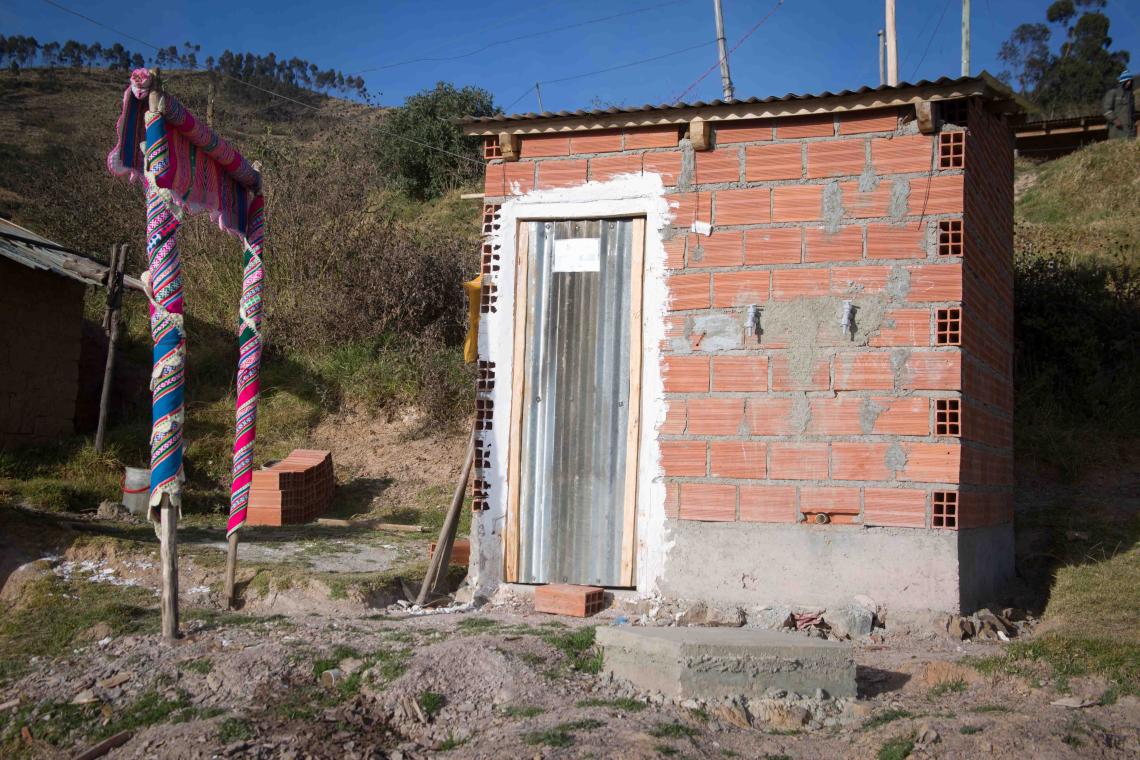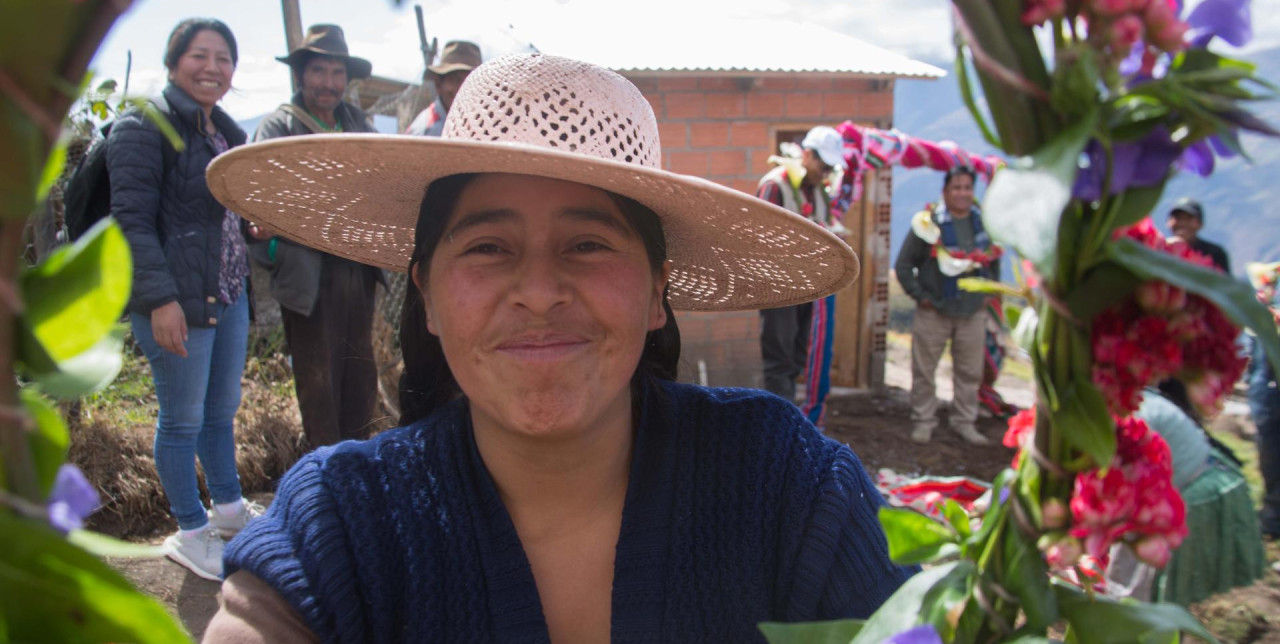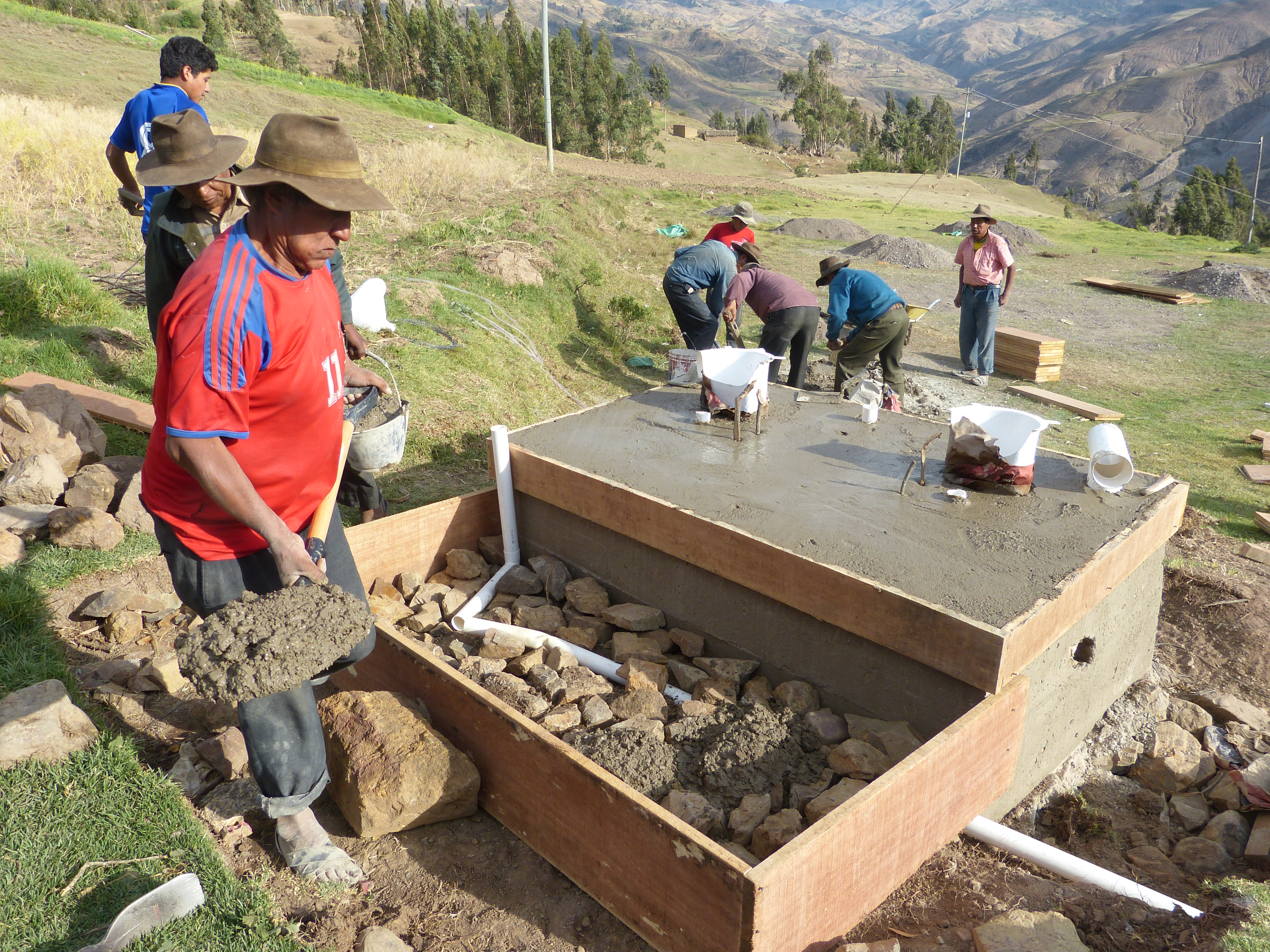23-11-2023 | di COOPI
Bolivia. Communities in Cochabamba build their own sanitation systems
Article published by: Unicef Bolivia
576 families have built toilets and their 35 communities have been certified "Free from Open Defecation" (LDCA), thanks to the project implemented by UNICEF, the Autonomous Municipal Government of Independencia and the COOPI Foundation-International Cooperation have been able to eliminate this practice. The villagers played an active role, providing labor and investing in further improvements.
We are happy, now we have a bath and shower at home. Before, we used to go to relieve ourselves in the bush, in the woods or by the river, and it was dangerous because it was dark and we were alone,
recount some of the women from the 576 families in the municipality of Independencia, Cochabamba, who have built their own toilets and showers, thus achieving "Free from Open Defecation" (LDCA) certification for the 35 communities in which they live
Children, adolescents and women are those who will benefit most from the project "Implementation of a Strategy to Eliminate Open Defecation in the Municipality of Independencia - Department of Cochabamba"
For community members, having a hot shower at home is priceless as they can now wash themselves without having to deal with the inconvenience of heating the precious natural element in a pot placed over a wood fire and then having to take a shower in a room or on the patio, covering themselves with blankets so as not to be seen or catch cold.
I used to go to the bathroom by the trees. Sometimes we had to wait until the next day because we were afraid, because it was getting dark, because everything was black. Three years ago I wanted to have a bathroom, now we finally have one, I don't have to go far, I feel good, we are very happy. There is also a shower, now there is a place to take a bath, we won't have to heat the water or take a bath in the room or kitchen anymore. The decision to build the bathroom was my mother's because she has four daughters,
Maribel Mamani recalls.
To go to the bathroom I had to go deep into the bush, or go to the river, and so I would walk a long way with my five children. At night it was dangerous for my wawas,
Cristina Caro adds.
I am happy because we don't have to go so far to take a bath anymore. A shower is the main thing to get clean, so when my children and grandchildren arrive they can take a shower at their leisure; before we used to heat water in the kitchen and wash in the yard in a big basin,
says joyfully Isabel Simón, another community member.
The Bolivian highlands and valleys are areas of high fecal contamination, where poverty and child mortality rates are also high. It has been shown that the higher the rate of open defecation (DCA), the higher the rate of chronic malnutrition and the incidence of acute diarrheal diseases in children under five years of age. Therefore, the project focused on: encouraging families to move away from DCA through self-construction of sanitation facilities, increasing access to sanitation facilities at home and in educational units, and generally encouraging community members to adopt hygiene habits, thereby improving the public health of the population.
The goal of COOPI and UNICEF was also to obtain a demonstration model for the elimination of DCA, with short-term results, demonstrating a strategy in terms of methodology, coverage, time, logistics, and budget. Likewise, coordinate strategic alliances so as to form synergies at municipal and community levels, because environmental sanitation is an integral activity in which public and private institutions, civic and social organizations, municipal and regional authorities participate. Lessons learned are systematically collected to plan new interventions in other areas.
Community, gender and generational empowerment
In 35 of Independencia's 154 communities, the households were first incentivized to build their own toilets, embracing the human right to water and basic sanitation. Thereafter, community and women leaders were involved, not only demanding changes, but also fostering them through their effective participation in the project. In this regard, Edgar Paniagua, UNICEF's sanitation officer, says:
women should be involved in basic service decision-making, sanitation committees or leadership, motivate family engagement and encourage community organizing to work.

This is confirmed by the testimonies of community members who say that their families, now that they have a bathroom in their homes, no longer have to go out to look for a place to wash, especially at night, putting their personal safety at risk. In these 35 communities, 1,581 women of all ages now have access to safe, private toilets.
Another proof of women's empowerment is the fact that they report that their husbands and partners had no knowledge of building and construction, yet they encouraged them to build the toilets, but also participated in the work side by side with them.
My husband knew nothing about construction, I helped him with the work, passing him the materials; my son-in-law helped us build the well, says Isabel Simón, a community member.
Evaluations of community members show their joy for the achievement and the benefits they now have for having toilets in their homes, one beneficiary states:
<Blockquute>We women are happier to have a toilet, we no longer have to go far, now the toilet is close by. Now we are quiet and happy. </Blocqkuote>
Another adds:
Our children feel more comfortable because we now have a bathroom. I like my bathroom and my shower! I am very grateful for the help, with this impulse we built, they helped us with calamine, nails, cement, pipes, cups, all this.
And again:
We like the bathroom, but especially the shower, when we get dirty and cold we take a bath.
Abel Veizaga, a villager, also highlights the experience:
The whole family decided to build the bathroom. My 23-year-old son helped me build it, we didn't know anything about construction, but we learned. My family is grateful, now the we will use it and clean it, because we want to live a good life and we want to improve.
Also, generational empowerment has been generated, because the children and young students in these 35 municipalities who have access to these new toilets now ask their parents to build new houses to live better. Of the 3101 people living in the 35 communities, 1152 are under 18 years old (37 percent).

The willingness of these families to have better sanitation and to improve the public health of the population involved their work, the use of their time, and the economic investment they made as counterparts of COOPI and UNICEF. Due to their personal, family and community efforts, and especially the results, it can be concluded that the development and conclusion of the project was a success.
Data related to the municipality of Independencia:
- The municipality of Independencia is located in Ayopaya province, in the northwest of Cochabamba department, 220 kilometers from the capital.
- It has 23,658 inhabitants (INE, Census of Population and Housing 2012).
- Eighty-five percent of the population has no sanitation facilities at home, which affects more than 3,000 children under the age of five (data from the Autonomous Municipal Government of Independencia).
- The region has 154 communities. COOPI International and UNICEF's project has developed in 35 of them, involving 576 households, or 3101 people, including 1581 women of all ages and 1152 children of both sexes (37 percent).
- The project incorporated four Quechua language facilitators from the communities. They were trained in various methodologies to visit the communities where they socialized good hygiene and sanitation practices.




 Bolivia
Bolivia
